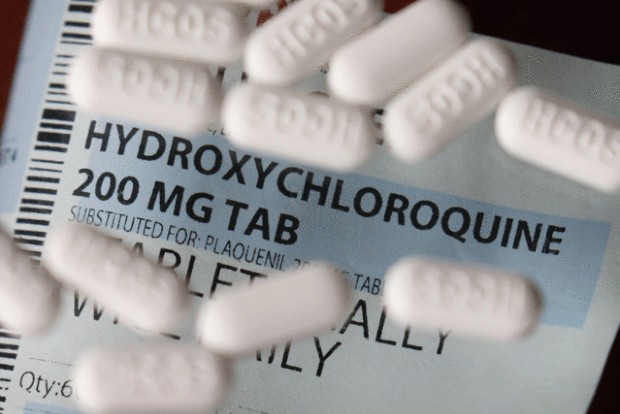Begin typing your search...
'Hydroxy hysteria,'politics ended HCQ use: Trump adviser
A top adviser to US President Donald Trump has blamed the politicisation of COVID-19 treatment and a "hydroxy hysteria" fueled by the "mainstream media" for the discontinuation of hydroxychloroquine's (HCQ) use.

New York
The official, Peter Navarro, cited on Tuesday a study of 2,451 patients by doctors in Detroit that showed that early use of HCQ reduced the death rates of hospitalised patients by half and said, "This has become a highly politicised (matter), but India uses this widely (as) prophylaxis. There's a number of studies which point to this actually working."
Mentioning the study, Trump tweeted on Monday, "The Dems disparaged it for political reasons (me!). Disgraceful."
India sent over 50 million doses of HCQ to the US at the request of Trump, who has advocated its use and even took it for some time as a preventive against the disease.
The Indian Council of Medical Research (ICMR) National Task Force on COVID-19 has recommended that healthcare workers and others caring for coronavirus patients use HCQ as a preventive.
There was opposition to its use in the US by some doctors, many in the media and Democratic Party leaders like Speaker Nancy Pelosi, who have called it an unproven remedy. They also cited adverse effects HCQ has on people with heart problems.
The World Health Organisation (WHO) has vacillated on HCQ use, stopping trials using it, then reinstating it and again dropping it.
The patients in the study published last week in the International Journal of Infectious disease were, however, screened for heart disease and the medicine worked when it was started early in the disease cycle.
The Food and Drug Administration (FDA) withdrew the emergency use authorisation for treating COVID-19 patients mainly because of the heart issue and two studies that said HCQ was not effective.
Navarro, who is the White House director of Trade and Manufacturing Policy, told reporters in Washington that the two studies that influenced the FDA decision were flawed because one of them was "poorly designed" and the other was about late-term use when it would not work, unlike the Michigan study of early use.
Navarro is also the policy coordinator for the National Defence Production Act that was invoked by Trump to gear up manufacture of devices like ventilators required for treating COVID-19 patients and personal protective equipment for healthcare workers, which were in short supply because of years of de-industrialisation of the US that gave China a firm grip on supplies.
The Michigan study showed that only 13 per cent of patients who received HCQ early on died, while 26 per cent of those who were not treated with it died.
Like the Michigan doctors, another in Kiryas Joel in New York State had reported that it works if patients are treated in the early stages, according to CBS New York. But he used HCQA in combination with zinc and an anti-biotic.
Vladimir Zelenko told the station that only two of the 400 patients he treated with the combination had died.
Navarro said, "If, in fact, early treatment use can lead to a 50 per cent reduction in mortality that's tens of thousands of American lives that are at stake, by a phenomenon which I call the hydroxy hysteria."
"It's, it's the politicisation of this medicine, by mainstream media and portions of the medical community that have somehow made this a battle between President Trump and them and created this undue fear and hysteria over a drug that's been used for over 60 years relatively safety and is regularly prescribed to pregnant women if they go into a malaria zone," he added.
Explaining how HCQ works, Navarro said that "out of a 14-day arc of the virus from the beginning of symptoms to the time you might be in an ICU (intensive care unit) setting on a ventilator, the first seven days are critical."
During the first days when there are symptoms like fever, dry cough or fatigue the lungs are still intact HCQ works in a therapeutic way by raising the alkalinity of the cells slowing the replication of the virus, and even killing it, he said.
"It also has an anti-inflammatory effect, which is why it's used for rheumatoid arthritis and and drug can also therefore help manage what's called a cytokine storm," he added.
Navarro said that the Detroit doctors in Michigan's Henry Ford Health System applied to the FDA on Monday for a new emergency use authorisation to continue treating patients with HCQ.
Visit news.dtnext.in to explore our interactive epaper!
Download the DT Next app for more exciting features!
Click here for iOS
Click here for Android
Next Story



